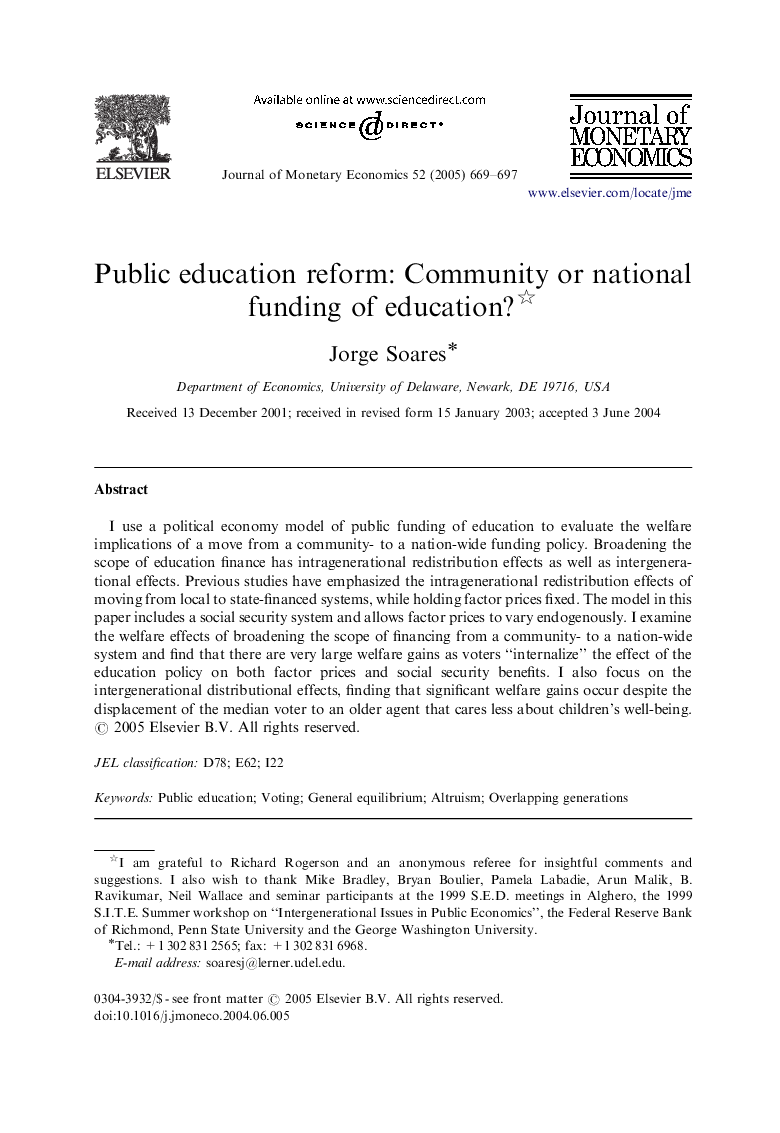| Article ID | Journal | Published Year | Pages | File Type |
|---|---|---|---|---|
| 10478785 | Journal of Monetary Economics | 2005 | 29 Pages |
Abstract
I use a political economy model of public funding of education to evaluate the welfare implications of a move from a community- to a nation-wide funding policy. Broadening the scope of education finance has intragenerational redistribution effects as well as intergenerational effects. Previous studies have emphasized the intragenerational redistribution effects of moving from local to state-financed systems, while holding factor prices fixed. The model in this paper includes a social security system and allows factor prices to vary endogenously. I examine the welfare effects of broadening the scope of financing from a community- to a nation-wide system and find that there are very large welfare gains as voters “internalize” the effect of the education policy on both factor prices and social security benefits. I also focus on the intergenerational distributional effects, finding that significant welfare gains occur despite the displacement of the median voter to an older agent that cares less about children's well-being.
Related Topics
Social Sciences and Humanities
Economics, Econometrics and Finance
Economics and Econometrics
Authors
Jorge Soares,
